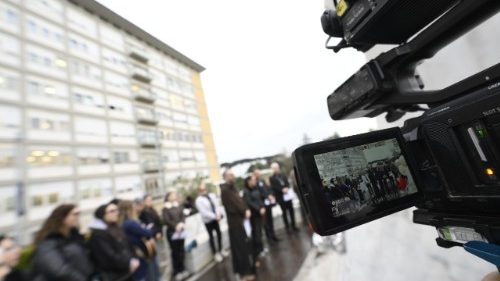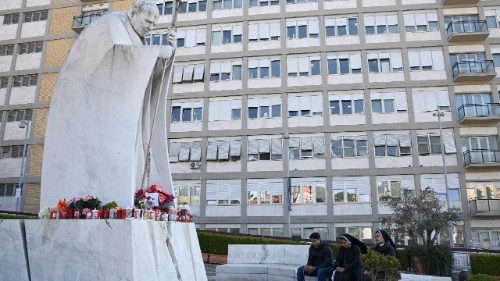Cardinal Arizmendi: Authoritarianism can blind
The importance of dialogue and humility in decision-making, both in politics and in the Church and the family

Cardinal Felipe Arizmendi, bishop emeritus of San Cristóbal de Las Casas and head of the Doctrine of Faith at the Mexican Episcopal Conference (CEM), offers readers of Exaudi his weekly article.
FACTS
When a politician assumes power, at the head of a nation or in any other instance, he can become an authoritarian, who thinks he can do whatever he wants, such as changing laws and ordering actions, without taking into account those who present another point of view. This can happen not only to the new President of the United States, who believes himself to be the owner of the world, but to anyone else. We have experienced it in our own country, in different six-year terms. The ruler in power decides on something that seems necessary to him, like some of the flagship works of our predecessor, with which he wanted to bring the south of the country out of centuries-old backwardness, but without considering the environmental impact, the viability, the cost and the real benefit. When someone only listens to himself, he can become a dictator. There are plenty of examples, in all times and places.
The same can happen in our Church. Someone with a position as a catechist, deacon, priest or bishop can decide without listening to either the community or his counselors. It is true that there are very reserved cases in which, out of respect for the people, the reasons for making a decision cannot be shared, such as when it is a matter of suspending a priest from exercising his ministry. Divulging the reasons would seriously damage his right to be respected in his interiority. But these cases are the minority, fortunately. The synodal dimension of the Church, which the Pope is promoting, is precisely to avoid clericalism, which is a form of authoritarianism. We must listen as much as possible and prudently before making a pastoral decision. We cannot renounce our obligation to decide, but we must educate ourselves to do so in the most communal way possible. However, there are issues defined by God that we cannot change, even if pressure groups criticize us for it. Abortion is prohibited by divine law, and in this we cannot give in to pressure or criticism. No one has more authority than God, and He exercises it in a merciful way and respectful of human freedom.
When, in a family, one of the parents is authoritarian, he does not listen to his partner, nor to the children. He decides without taking them into account, only because he is the one in charge. And this can spread to one of the children, such as someone who, being the eldest, considers himself to have a lot of authority, replicating the excesses of his parents. The same can happen at school, in the office, in business, in sports, etc.
ENLIGHTENMENT
Pope Francis, in his encyclical Fratelli tutti, says: “We need a politics that thinks with a broad vision and that carries out a comprehensive rethinking, incorporating the various aspects of the crisis in an interdisciplinary dialogue. I think of a healthy politics, capable of reforming institutions, coordinating them and providing them with better practices, which allow us to overcome vicious pressures and inertia.
In the face of so many petty and immediate forms of politics, I remember that political greatness is shown when, in difficult times, one acts according to great principles and thinking of the common good in the long term. Political power has a hard time assuming this duty in a national project, and even more so in a common project for present and future humanity.
Global society has serious structural flaws that cannot be resolved with occasional patches or quick solutions. There are things that must be changed with fundamental rethinking and important transformations. Only a healthy politics could lead it, calling on the most diverse sectors and the most varied knowledge. In this way, an economy integrated into a political, social, cultural and popular project that seeks the common good can open the way to different opportunities, which do not imply stopping human creativity and its dream of progress, but rather directing that energy into new channels” (FT 177-179).
And as for migration, which is a very worrying issue now with Donald Trump, who, with a very selfish vision, closes his heart to so many people who flee their country for various reasons, the Pope says: “Beyond the various indispensable actions, States cannot develop adequate solutions on their own, since the consequences of the choices made by each one inevitably affect the entire international community. Therefore, the answers will only come as the fruit of common work, creating global legislation for migration. In any case, it is necessary to establish medium and long-term plans that do not remain a simple response to an emergency. They must serve, on the one hand, to really help the integration of migrants in the host countries and, at the same time, to promote the development of the countries of origin, with solidarity policies that do not subject aid to ideological strategies and practices that are foreign or contrary to the cultures of the peoples to whom it is addressed” (FT 132).
ACTIONS
Those of us who hold office should learn to listen to others before deciding. Let us not be chieftains who want to have the world at our feet. The wisdom of a ruler implies humility, to recognize his limits and involve others in the path to follow.
Related

Pope Francis spent a peaceful night
Exaudi Staff
02 March, 2025
1 min

Pope Francis has had a peaceful night
Exaudi Staff
25 February, 2025
1 min

What should the boyfriend or girlfriend I should find be like?
Patricia Jiménez Ramírez
24 February, 2025
4 min

The Pope spent a quiet night at Gemelli
Exaudi Staff
23 February, 2025
1 min
 (EN)
(EN)
 (ES)
(ES)
 (IT)
(IT)

